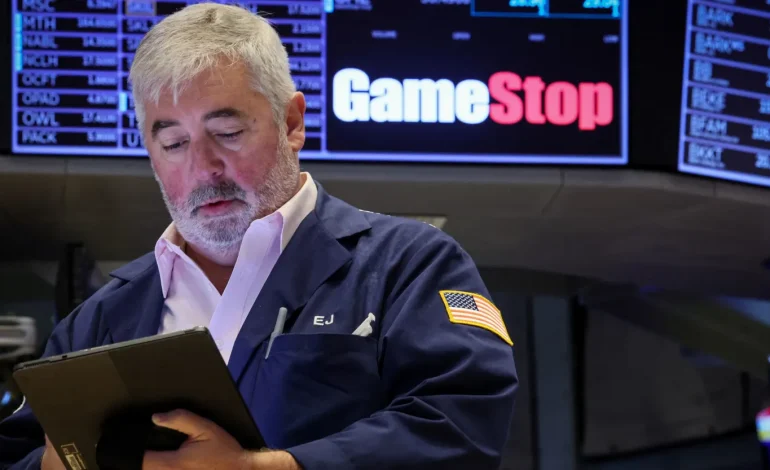GameStop, the well-known video game retailer, has announced plans to close a “significant number” of stores in fiscal year 2025 while also updating its investment policy to include Bitcoin as a treasury reserve asset.
The company has not specified which locations will close or how many stores will be affected.
GameStop has been downsizing for several years, closing hundreds of stores globally as it adapts to changing market conditions. According to CNN, the company has already shut down 590 stores in the US, reducing its total count to 2,325 as of February 1, 2024. Its worldwide store count stands at 3,203, a sharp decline from its peak of approximately 6,000 locations.
In addition to store closures, GameStop announced job cuts in early 2024, raising concerns among analysts about the company’s ability to recover revenue. While GameStop remains a recognizable name in gaming retail, the industry has shifted significantly toward digital sales, impacting traditional brick-and-mortar stores.
Alongside its restructuring efforts, GameStop has made a notable shift in its financial strategy by investing in Bitcoin. In a recent filing, the company stated that its board had “unanimously approved” an update to its investment policy, allowing a portion of its cash or future debt and equity issuances to be allocated to Bitcoin.
GameStop has not set a limit on how much Bitcoin it may acquire and stated that it may sell any Bitcoin holdings in the future. This move mirrors the strategy adopted by MicroStrategy, a company known for investing heavily in cryptocurrency. Following the announcement, GameStop’s stock briefly surged by 15% before experiencing fluctuations.
The decision to invest in Bitcoin has been met with mixed reactions. Some investors saw an initial boost in GameStop’s stock price, while others expressed skepticism about the long-term benefits. The company announced plans to raise $1.3 billion through the sale of convertible senior notes due in 2030, with a portion of the proceeds earmarked for Bitcoin purchases.
Analysts have raised concerns about the strategy. Michael Pachter of Wedbush noted that GameStop’s valuation is already high, and it remains uncertain whether the company will achieve the same level of success as MicroStrategy. He also pointed out that investors purchasing the convertible debt will need confidence in the long-term sustainability of GameStop’s market position.










The latest news in your social feeds
Subscribe to our social media platforms to stay tuned